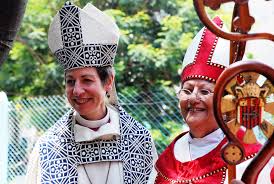Having a blog helps me keep accountable to reading through Wayne Grudems Systematic Theology...
More from the "introduction" chapter:
1. What happens when Christians come to conclusions about theological issues without thorough regard to scripture? (I am definitely guilty of this, and it doesn't have to be like that!)
Can you ask questions in theology that are not directly answered in the Bible? Can we ask about things that were apparently not important to the writers in the Bible, such as women's roles in the church, the doctrine of the trinity, etc?


YES, says Grudem. "Our choice of topics need not be restricted to the main concerns of the biblical authors, for our goal is to find out what God requires of us in all areas of concern for us today."
It is clear that "we WILL think something about those subjects, and often form our opinion haphazardly from a general impression of what we feel to be a "biblical" position on each subject.
In fact, this approach - one all too common in evangelical circles today - could, I suppose, be called "unsystematic theolody" or even "disorderly and random theology."
It tends toward doctrinal fragemntation and widespread doctrinal uncertainty, leaving the church theologically immature, like "children, tossed to and fro and carried about with every wind of doctrine." "
2. We should study systematic theology with prayer.
Just as the psalmist prays in Psalm 119:18, "Open my eyes, that I may behold wondrous things out of your law," so we should pray and seek God's help in understanding his Word."
"Studying theology is therefore a spiritual activity in which we need the help of the Holy Spirit."
3. WE should study systematic theology with humility.

I often connected "theology" with prideful people and also with almost unkindness to people with different theological conclusions...why is that so?
Grudem says, "Systematic theology rightly studied will not lead to the knowledge that "puffs up" but to humility and love for others."
4. One last point; we can make logical deductions from scripture about things that are not directly addressed IN scripture.
But, according to Wayne Grudem, "any logical deductions from scripture cannot contradict scripture."
More to come....
More from the "introduction" chapter:
1. What happens when Christians come to conclusions about theological issues without thorough regard to scripture? (I am definitely guilty of this, and it doesn't have to be like that!)
Can you ask questions in theology that are not directly answered in the Bible? Can we ask about things that were apparently not important to the writers in the Bible, such as women's roles in the church, the doctrine of the trinity, etc?
YES, says Grudem. "Our choice of topics need not be restricted to the main concerns of the biblical authors, for our goal is to find out what God requires of us in all areas of concern for us today."
It is clear that "we WILL think something about those subjects, and often form our opinion haphazardly from a general impression of what we feel to be a "biblical" position on each subject.
In fact, this approach - one all too common in evangelical circles today - could, I suppose, be called "unsystematic theolody" or even "disorderly and random theology."
It tends toward doctrinal fragemntation and widespread doctrinal uncertainty, leaving the church theologically immature, like "children, tossed to and fro and carried about with every wind of doctrine." "
2. We should study systematic theology with prayer.
Just as the psalmist prays in Psalm 119:18, "Open my eyes, that I may behold wondrous things out of your law," so we should pray and seek God's help in understanding his Word."
"Studying theology is therefore a spiritual activity in which we need the help of the Holy Spirit."
3. WE should study systematic theology with humility.
I often connected "theology" with prideful people and also with almost unkindness to people with different theological conclusions...why is that so?
Grudem says, "Systematic theology rightly studied will not lead to the knowledge that "puffs up" but to humility and love for others."
4. One last point; we can make logical deductions from scripture about things that are not directly addressed IN scripture.
But, according to Wayne Grudem, "any logical deductions from scripture cannot contradict scripture."
More to come....


Hi Hannah! Our pastor gave us a copy of Systematic Theology and I have read quite a bit of it but in bits and pieces. It's a lot to digest! I usually read it when I've heard something I question on christian radio or from a friend who goes to another church. So, not exactly systematic study. :) Love all the pictures of Sweden and the kids.
ReplyDeleteYvonne